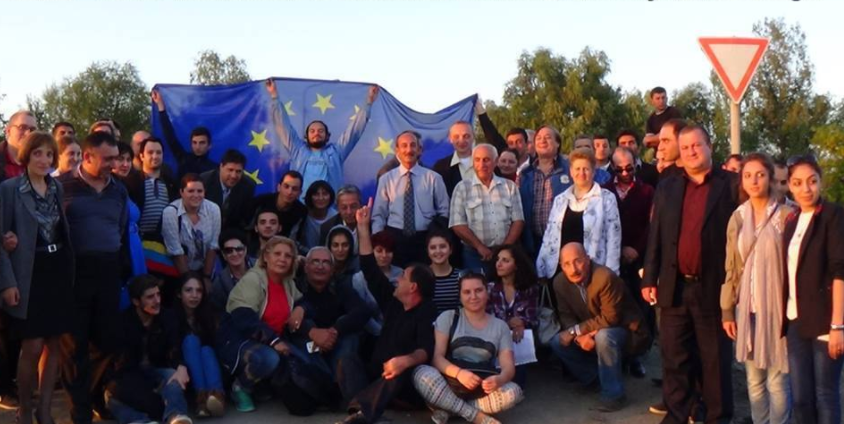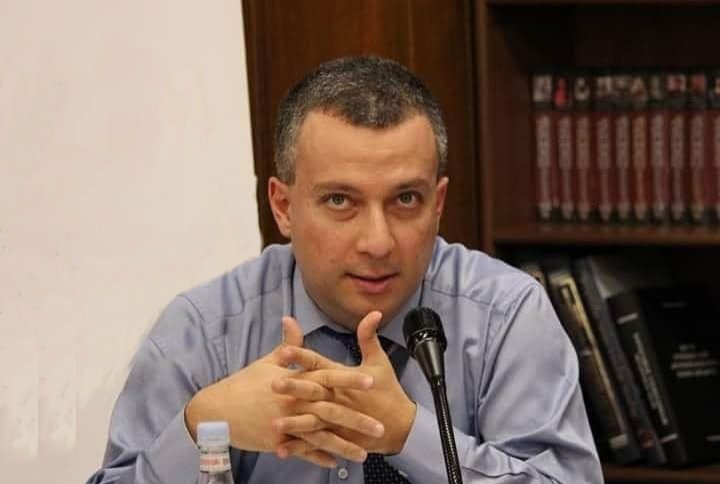The dialogue with different segments of Azerbaijani society – civil society groups, expert and academic circles – was always a sensitive topic in Armenia. There was always a feeling that dialogue with Azerbaijanis may accept their interpretation of the Karabakh conflict or make unacceptable concessions. However, since the 1994 ceasefire, many track-two and track 1.5 diplomacy initiatives were launched, mainly funded and supported by Western organizations and funds. They organize hundreds, if not thousands, of workshops, conferences and meetings in Tbilisi and different European capitals. Soon a group emerged in Armenia and Azerbaijan, who started to know each other and participated in almost all such events.
Meanwhile, these initiatives started to live their own lives, having less influence on the actual situation and losing the connection with the official negotiation process and with large segments of society. The 2020 Azerbaijani aggression against Artsakh put a hold on these initiatives. Immediately after the war, there was disappointment among participants and organizers. All these resources were spent to avoid the war, if not to bring lasting peace. There was a feeling that more than 20 years of “peace activities” were a waste of resources and became a tool for the very narrow circle of people for free travels around the world.

While the 2020 Karabakh war did not solve the conflict, despite Azerbaijan’s attempts to convince itself and the world, on the contrary, the international community is still interested in keeping track two and track 1.5 diplomacies alive. There are different efforts, mainly funded by the European Union, to revitalize the process. Azerbaijani participants of this process seek to present these efforts as post-conflict rehabilitation, justifying their claims that the conflict is over. Meanwhile, in Armenia, we witness interesting and somehow strange developments. The movement emerged, which calls for destroying myths in Armenian society. Experts and representatives of academia and civil society argue that the core reasons behind the conflict are the myths and fears within Armenians towards the Turks and Azerbaijanis. According to this narrative, if Armenians overcome their fears, they will find it quite possible to live in peace with Azerbaijanis inside Azerbaijan. According to this narrative, the entire history of Armenia–Azerbaijan relations since establishing the Azerbaijani state in 1918 is based on myths. Massacres of Armenians in Baku in 1918, Shushi in 1920, Sumgait in 1988 and Baku in 1990 are fairy tales or semi-truths. Even the gross violations of human rights and international humanitarian law by Azerbaijan during the 1992-1994 and 2020 Karabakh wars and in the last 14 months after the war are exaggerated. According to this narrative, Armenians only need to overcome these myths, and very soon, Armenia and Azerbaijan may live together in harmony and peace like Germany lives with France.
Simultaneously, some circles are putting forward the idea of an inherent contradiction between patriotism and human rights protection, arguing that if Armenia wants to have a good record of human rights protection, it should forget about lands taken by Azerbaijan during the 2020 war. It is a strange narrative, as it appears that for Armenia to enjoy a high level of democracy and human rights protection, the Azerbaijani flag should be raised in Shushi, Hadrut and Karvachar.
The appearance and spread of these narratives are very dangerous for Armenia. They distort the reality and push forward the central narratives of Azerbaijani anti-Armenian propaganda, significantly complicating Armenia’s efforts to punish Azerbaijan through the international legal process. Maybe this trend is a reaction of some part of the society to the defeat in the 2020 Karabakh war and the growing military pressure on Armenian territory itself. Regardless of the reasons behind such activities, the state should prevent the circulation of such narratives. Some may argue that Armenia is a democratic country, and any actions against these activities will violate freedom of speech and other fundamental human rights. However, all states, even the most democratic ones, must protect their vital national interests.



Be the first to comment